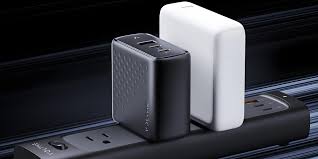Two reasons why furious New Zealanders are turning against Jacinda Ardern as she suffers a HUGE poll shock with ...

Two reasons why furious New Zealanders are turning against Jacinda Ardern as she suffers a HUGE poll shock with voter support plummeting to the lowest since she took office - and a new challenger for PM emerges
- Jacinda Ardern's Labour is no longer the most popular after polling just 37%
- Covid-19 and high inflation has voters ready to punish the PM next election
- Chris Luxon's National recorded 39% in the TVNZ-Kantar poll
- More than four per cent of the population have Covid-19
By Ben Mckay and Ben Mckay For Australian Associated Press
Published: 11:10 GMT, 10 March 2022 | Updated: 12:22 GMT, 10 March 2022
For the first time in the Covid-19 era, Jacinda Ardern's Labour is no longer the most popular party in New Zealand.
That honour now belongs to the opposition National party, led by Chris Luxon, which has surged in the latest TVNZ-Kantar poll, released on Thursday.
National polled 39 per cent in the well-regarded poll, up seven points, compared to Labour's 37 per cent, down three.
Labour's figure is the lowest since Ms Ardern took office in 2017.
New Zealanders are currently enduring significant tumult, including the country's first mass Covid-19 outbreak of the pandemic.


New Zealand prime minister Jacinda Ardern and her Labour party polled just 37 per cent, down three and the lowest since she took office in 2017
More than four per cent of the population are active cases, with a significant additional wedge of the population isolating in their homes as close contacts of Covid-19 cases.
That includes Mr Luxon, one of around a dozen MPs to have tested positive for Covid-19 this month, and who has joined parliament this week via videolink.
The government's Covid-19 policies also sparked a 23-day anti-vax occupation of parliament lawns, which ended in mass arrests and fires on the lawns of parliament house last week.
PREFERRED PARTY
Labour - 37 per cent (down 3)
National - 39 (up 7)
Greens - 9 (steady)
ACT - 8 (down 3)
Maori Party - 2 (steady)
NZ First - 2 (steady)
PREFERRED PRIME MINISTER
Jacinda Ardern (Labour) - 34 per cent (down 1)
Chris Luxon (National) - 25 (up 8)
David Seymour (ACT) - 5 (down 1)
Winston Peters (NZ First) - 2 (up 1)
Kiwis are also suffering from generationally high inflation, last measured as increasing by 6.1 per cent of CPI annually, the highest rate since the 1990.
Ms Ardern told TVNZ 'we have been aware for some time this is a really tough time' for Kiwis.
'No question, this is one of the hardest moments New Zealand has been through in many years,' she said.
'We are in the peak of the pandemic, we have a global energy shock which everyone is feeling in New Zealand as a result of the war and we have Covid-related inflation.
'Families are feeling it.'
Mr Luxon, a former Air New Zealand chief executive who took his party's leadership late last year, has attacked the government in recent days for what he says is a 'cost of living crisis'.
'(New Zealanders) have a sense the government doesn't really have a plan and it certainly doesn't have any solutions,' he said,.
'Hopefully they're getting a sense from National we are strong economic managers and we do have ideas on how to take them forward.'
Of the minor parties, the Greens fared best with nine per cent, ahead of right-wingers ACT on eight, and the Maori Party and NZ First on two.


Chris Luxon's (pictured, left) National polled 39 per cent, up seven points, ,in the well-regarded TVNZ-Kantar poll
If replicated into parliamentary seats, the Maori party would hold the balance of power and would decide the next government.
'We'd have to go through a beauty contest when the time arrives,' Maori Party co-leader Rawiri Waititi said.
Ms Ardern retains a tight lead over Mr Luxon as preferred prime minister.
Labour won government in 2017 after striking a coalition agreement with balance of power parties NZ First and the Greens.
In 2020, Ms Ardern won a majority government - the first in 30 years - in an election dominated by COVID-19.


 New Zealand
New Zealand Argentina
Argentina  Australia
Australia  Austria
Austria  Brazil
Brazil  Canada
Canada  Germany
Germany  Ireland
Ireland  Italy
Italy  Malaysia
Malaysia  Mexico
Mexico  Poland
Poland  South Africa
South Africa  United Kingdom
United Kingdom  United States
United States 





















